The US-China factor in Philippines’ Marcos-Duterte feud comes to the fore
Philippine President Ferdinand Marcos Jr’s assertiveness in the South China Sea dispute was an early sign of a rift between him and his former allies, the Dutertes. The programme Insight looks at the spillover effects of their feud.
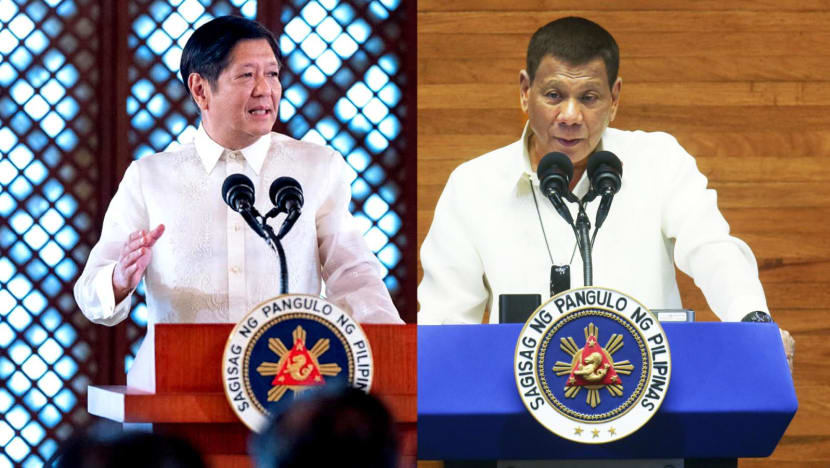

This audio is generated by an AI tool.
MANILA: For five decades Efren Purones has made a living from the sea. But the fisherman’s catches have been meagre lately.
“We spent hours here. But look, this is all we got,” he said, indicating the few fish in a bowl in his boat along the coast of Zambales, Philippines.
Some 200 kilometres away is Scarborough Shoal, where he is “sure to make money” from bountiful catches, he said. But he is reluctant to venture there.
In the past year and a half, tensions between Chinese and Philippine vessels in these waters, and around the Spratly Islands, have escalated.
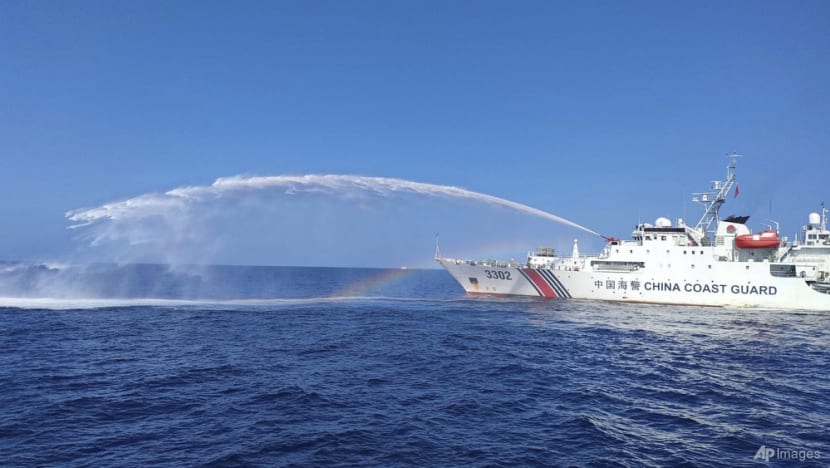
In June, Chinese coastguards, armed with knives and sticks, clashed with Filipino troops; a Philippine Navy sailor lost a thumb.
The clash occurred within the Philippines’ 200-nautical-mile exclusive economic zone (EEZ) but also within the vast swathe of the South China Sea claimed by Beijing, whose coastguard presence has blocked fishermen and offshore oil and gas survey efforts by the Philippines.
Observers note that tensions heightened as Philippine President Ferdinand “Bongbong” Marcos Jr pivoted away from his predecessor Rodrigo Duterte’s non-confrontational policy towards China.
“Marcos Jr pursued a harder foreign policy, which meant that Marcos Jr was more assertive in defending the Philippines’ rightful maritime claims,” University of the Philippines (UP) Diliman assistant professor of political science Edcel Ibarra told the programme Insight.
The president also allowed American troops access to more facilities in the Philippines and expanded joint exercises with the United States and its allies.
“China is reactive,” said political analyst Ramon Beleno III, who observed that “untoward incidents” initiated by Beijing in the South China Sea usually have come after the Philippines engaged in “activities with other countries”.
“When we suddenly … pivot towards the US, China is understandably surprised. (Beijing) would wonder where the past six years of co-operation went.”
But for Purones, the current approach is preferable, despite the heightened tension. “Marcos is for the Filipinos, Duterte was for China,” he said. “That’s why I lost interest in Duterte.”
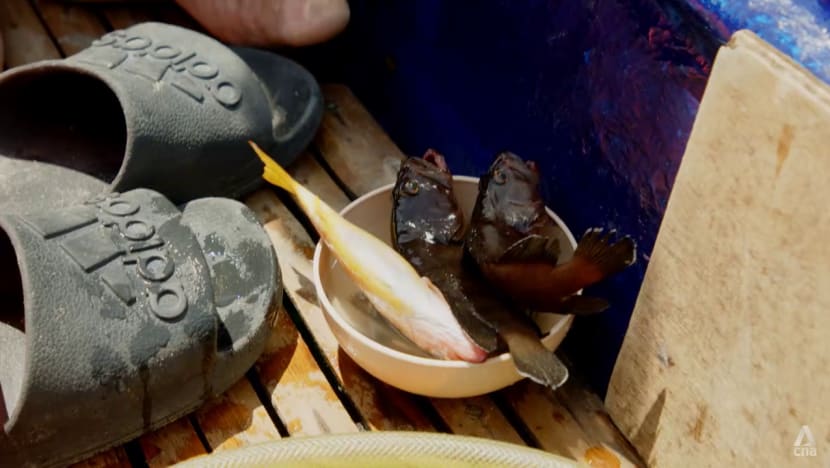
The former president and his family, however, do not intend being forced off the political stage.
While the deviation from Duterte’s approach to China was an early sign of a rift between former and current president, that rift has escalated into a political war between two dynastic families.
In an interview with Chinese state media in April, Duterte implied that Marcos was an American stooge, that the US “will tell him what he should say” to China.
Then in June, two days after the South China Sea clash, Vice President Sara Duterte — the former president’s daughter — resigned her post as education secretary in the Marcos Cabinet.
The role of Sino-American rivalry in Philippine politics is coming to the fore as the country faces continued challenges in the South China Sea. And the question arises: Will its domestic feud spill over into foreign policy?
WATCH: Is US-China rivalry behind the brewing Marcos-Duterte feud? (47.11)
DEATH OF AN ALLIANCE
It was not always like this between the Marcos and Duterte camps. For the 2022 elections, they formed an alliance, with Sara Duterte running for vice president together with Marcos as the presidential favourite.
She was the mayor of Davao City at the time and had not run for national office before.
“Some of her advisers thought that it’d be best for her to be with Marcos mainly because Sara Duterte lacked experience in the executive at the national level,” said UP Diliman political science professor Jean Encinas-Franco.
“That’d adequately prepare her if she runs for the presidency in 2028.”
The two, dubbed the UniTeam, were unstoppable and handily won their contests. But many observers did not expect the political partnership to last.
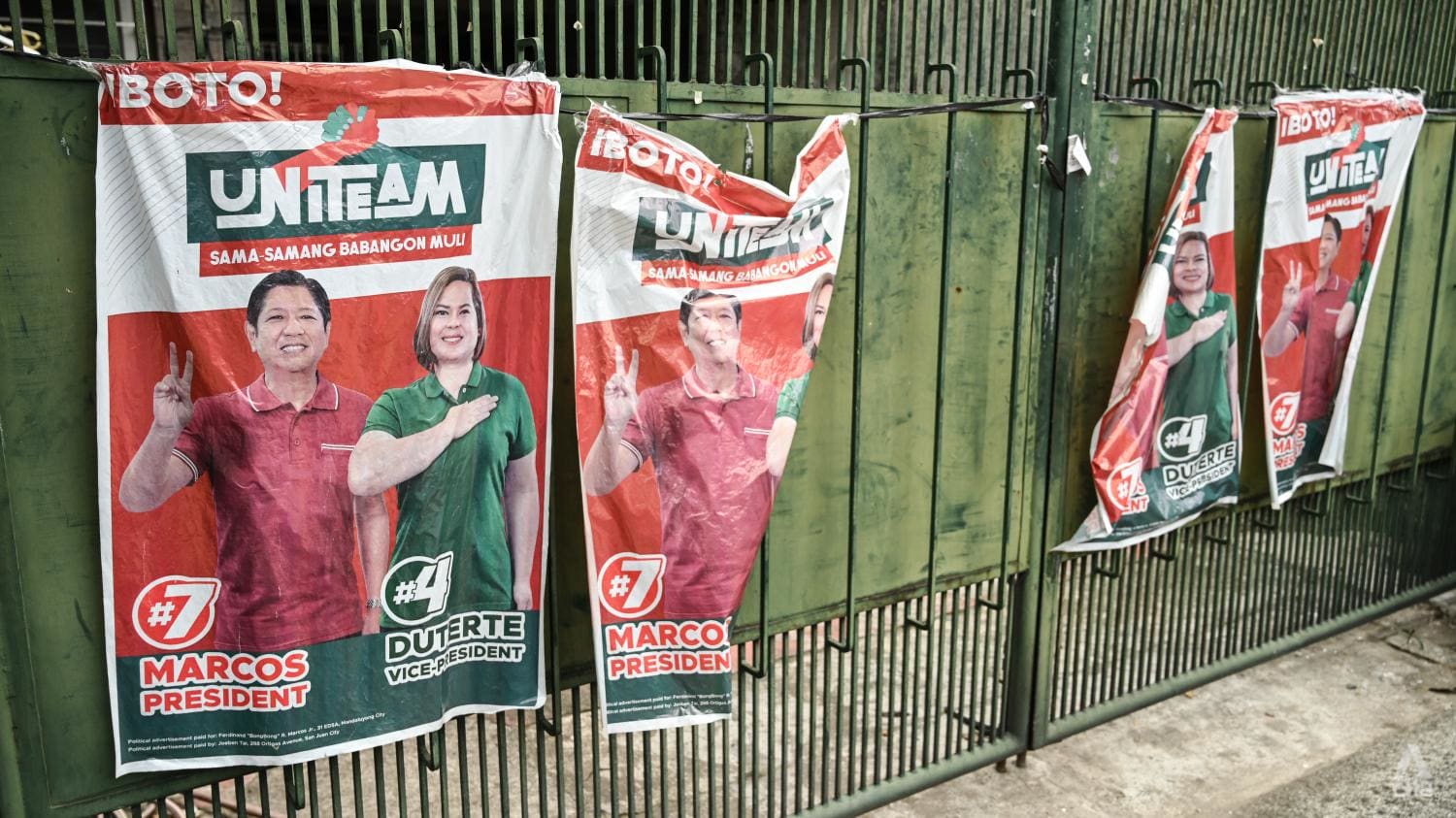
Walden Bello, a former member of the Philippines’ House of Representatives, gave it “a year and a half” at most. “In the Philippine context historically, electoral alliances between dynasties have been alliances of convenience,” he reasoned.
Indeed, there was friction early on when Sara Duterte, who had been eyeing the defence portfolio in the Cabinet, was given the education portfolio instead.
This did not surprise Ronald Llamas, who served as political adviser to the late President Benigno Aquino III.
“If you’re the president, why would you give the defence portfolio to your vice president? It means the vice president would control the military, which is risky,” said Llamas.
It was expected, meanwhile, that as the “anointed successor”, Marcos would continue Duterte’s foreign policy, said Ibarra. That did not happen either.
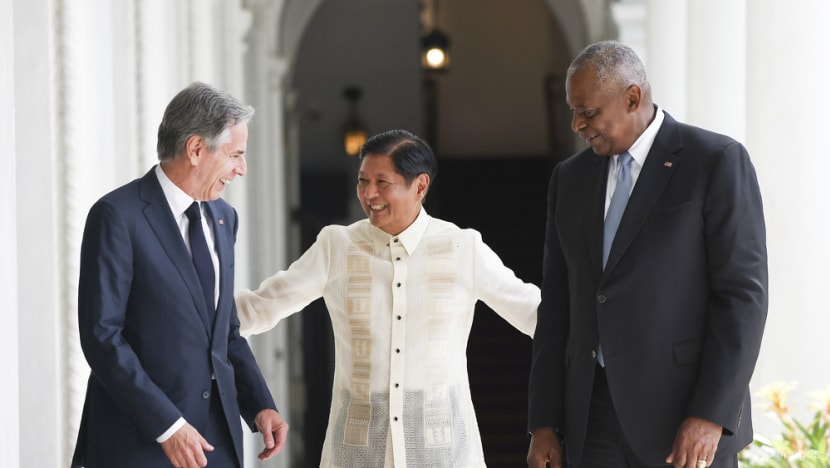
Then last December, Marcos said he had commissioned a study of whether constitutional changes were needed to allow more foreign companies to invest in the Philippines.
Currently, public utilities must be at least 60 per cent Filipino-owned, with the same limit on foreign ownership in the education and advertising sectors.
“Some people are worried that there’s nothing that can prevent those who’ll change the constitution from also changing the political provisions in the constitution, which can extend the terms of the current politicians,” said Encinas-Franco. “That’d be a game changer.”
Under the current constitution, the elected president can serve only one six-year term.
What Duterte, who was initially critical of any constitutional amendment, “is really afraid of is that Sara won’t be able to run for president in 2028”, said Bello.
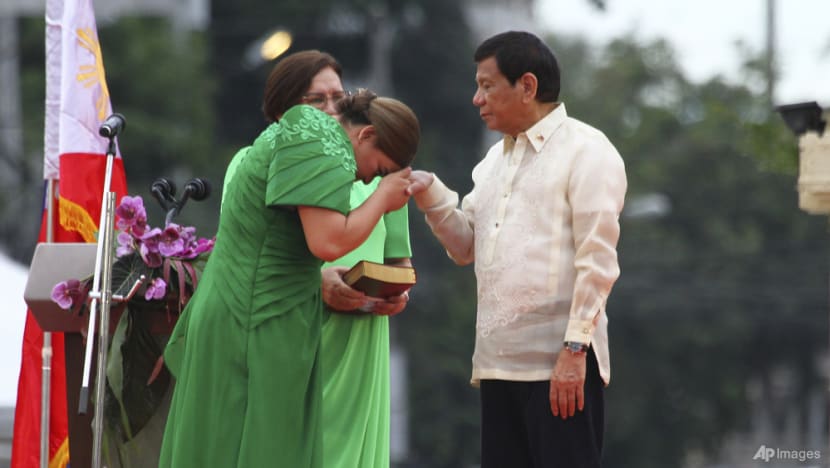
The Duterte camp has since ramped up the personal attacks. He even called Marcos a “drug addict”.
“They said I had drug pushers and addicts killed,” Duterte said at a rally. “(It’s a) good thing I’m no longer in office, or you (Marcos) might be among them.”
While his daughter has largely kept out of the fray, analysts think this could change now that she has left the Cabinet.
“Right now she has a free hand to criticise the administration, to entice supporters, entice people to side with (the Dutertes),” said Beleno.
A month after leaving the Cabinet, she skipped Marcos’ State of the Nation Address (Sona) — a political move, according to observers.
“If you’ve just made (it) a very public split, … it’d be very strange for you to appear in the Sona,” said Bello.
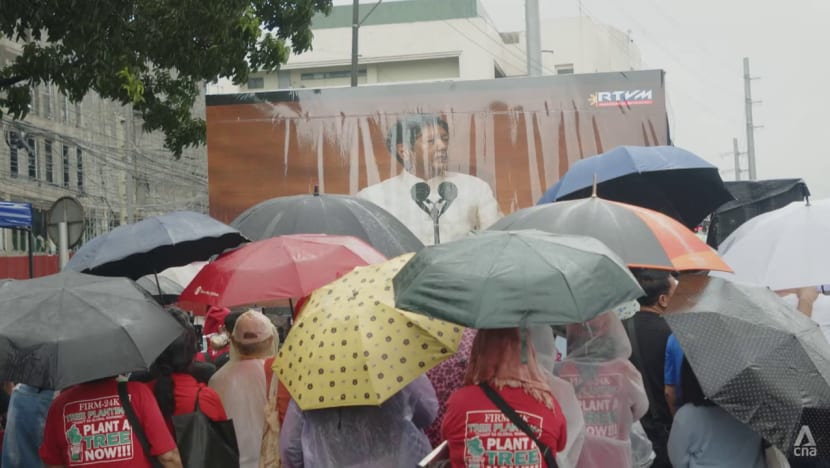
ORDINARY FILIPINOS DRAWN IN
As the feud between the two camps intensifies, ordinary Filipinos are increasingly being drawn in.
“Our politics tend to gravitate toward personality politics rather than political parties,” said Encinas-Franco. “It’s very easy to be polarised because the degree of polarisation depends upon the … key personalities.”
This is something journalist Julie Baiza can attest to as a reporter assigned to cover the president. She has received hate messages from those who have disagreed with her reports.
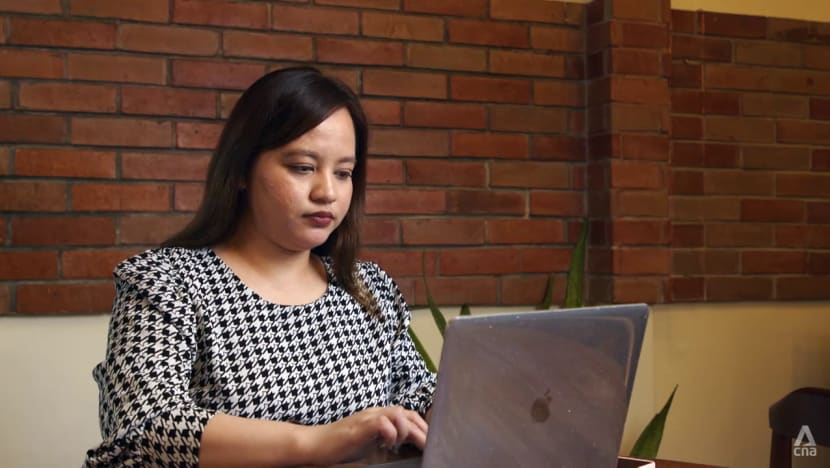
“Even a slight comment or critique (of) the politician they support would make them angry. It’s as if the discourse disappeared.,” she said. “That’s why politics became toxic.”
The Centre for Media Freedom and Responsibility recorded around 135 incidents of attacks and threats against media workers between July 2022 and this April.
And with the Philippines seeing the highest social media usage in Southeast Asia, not only can its online space be toxic, but also it was once dubbed “patient zero” in the fake news epidemic.
This can leave ordinary Filipinos vulnerable to influence from a foreign power.
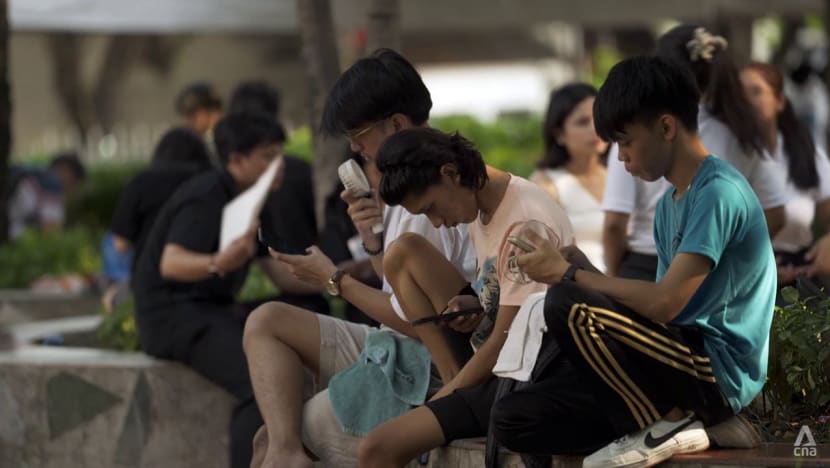
In January, Duterte suggested that Mindanao — where rebels once fought the government for independence — should secede from the Philippines.
Although he was once mayor of Davao City, the regional capital of southern Mindanao, and the current mayor is his younger son, Sebastian, the call gained little traction in the family’s stronghold. But it was a different story elsewhere.
Taiwan-based research organisation Doublethink Lab noticed posts about an imminent Philippine civil war circulating on Chinese social media. One article said if Marcos continued “serving” the US, then Mindanao would secede.
Another post, on Chinese platform Weibo, said Duterte was calling for independence, the military was taking sides and the country was on the brink of civil war.
“These posts could influence Filipinos’ public support for foreign policy issues,” said Doublethink Lab’s analyst lead, Shun-Ching Yang. His organisation also found that some Filipino influencers were parroting Chinese narratives.
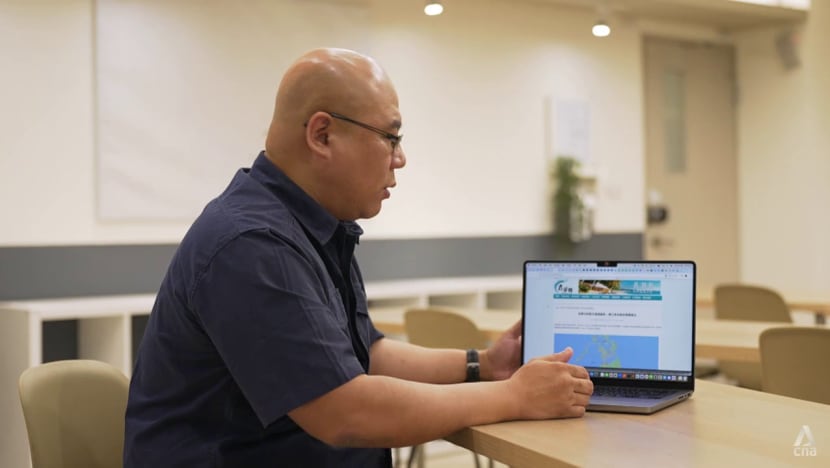
“China may further stir up their internal (political) conflicts … until it affects their foreign policy,” he said. Although the situation is not “very serious” now, it is “worth paying attention to”, he felt.
What is apparent to Llamas is the “new, emerging patriotism” among Filipinos. “In all surveys, more than 90 per cent … say they’re angry at China for encroaching on our territory,” he said.
The public is united, but politicians are divided owing to their different interests.”
Related stories:
‘OPEN WARFARE’
With the recent Sona, there is no doubt that the incumbent has made a “clear break” with the Duterte administration, observed Ibarra.
It was the first time in delivering the annual speech that Marcos mentioned the West Philippine Sea — Manila’s term for its EEZ in the South China Sea.
And the Marcos-Duterte feud has now extended beyond verbal exchanges to “open warfare” between the two families, said Bello.
In terms of approval ratings and trust, Sara Duterte has consistently out-polled Marcos. But the gap has narrowed since the split, at least according to one poll released last month by the OCTA Research Group.
“She’s trending downward,” said Llamas. But a bigger problem for Marcos, he added, is if his poll ratings drop owing to issues like food inflation.
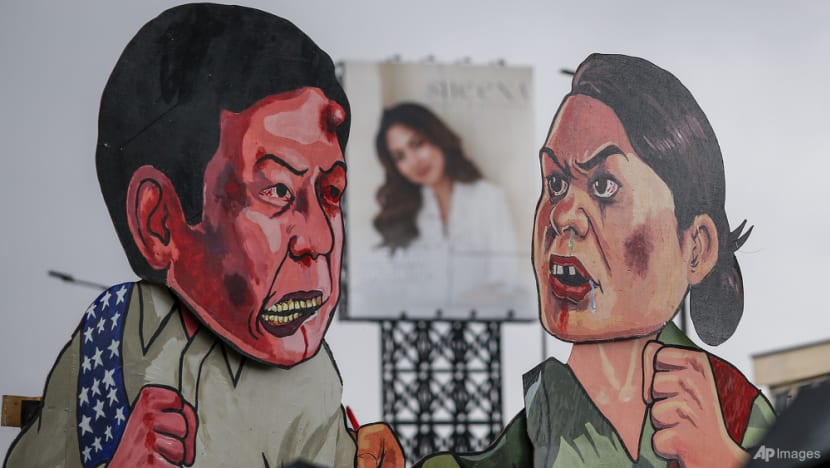
While the Philippine economy grew by 5.6 per cent last year — the fastest rate in the region — headline inflation this year climbed to its highest in July, at 4.4 per cent. Food inflation rose to 6.7 per cent.
Foreign investment remains comparatively low. And the feud could have an effect: It could “lead to a period of political instability”, said Ibarra. “What’s spooked investors as well as our diplomatic partners (is) how quickly policies can change between administrations.”
If Sara Duterte wins the 2028 presidential election, he added, it is likely that she will undo Marcos’ policies.
Also up in the air, with the US presidential election looming in November, could be US investments pledged to the Philippines. “We won’t have any problems if (Kamala) Harris wins,” said Beleno. “If it’s (Donald) Trump, then that’s another story.
“If Trump perceives that (the US’) presence in the Philippines will only cost them money and they won’t gain anything, I don’t think they’ll continue whatever promises the (Democrats) made.”
Then the Philippines would be in a “vulnerable position”.
“The Dutertes could use this situation to their advantage: ‘I told you, right? China should just be a friend. So, we were correct. … Since this administration made a mistake, we should correct it,’” said Beleno, speculating what Duterte would say.
Duterte and his two sons have already hinted at a run for the Senate in next year’s mid-term election. Meanwhile, there is no let-up in the geopolitical pressure on the Philippines.
This week, Beijing called on Manila to “seriously consider” the future of a relationship “at a crossroads”, in a commentary published by the People’s Daily newspaper.
Later this month, a summit of at least 20 nations is set to take place on the sidelines of the United Nations General Assembly — to find ways to “talk some sense” into China over its territorial confrontation with the Philippines, Reuters reported Manila’s Washington envoy, Jose Manuel Romualdez, as saying.
The biggest concern for Encinas-Franco at this crucial time is that domestically, Filipinos are led to believe there are only two choices: Marcos or Duterte.
“That’s a sad and unfortunate thing if that happens,” she said. “There are a lot of deserving politicians out there who can also run (for) and hopefully (be elected to) public office.
“The Philippines is on the cusp of change. We’re trying to revitalise our economy, to quell a country that’s encroaching on our territory, so our politicians should get their act together.”
Watch this episode of Insight here. The programme airs on Thursdays at 9 p.m.




















